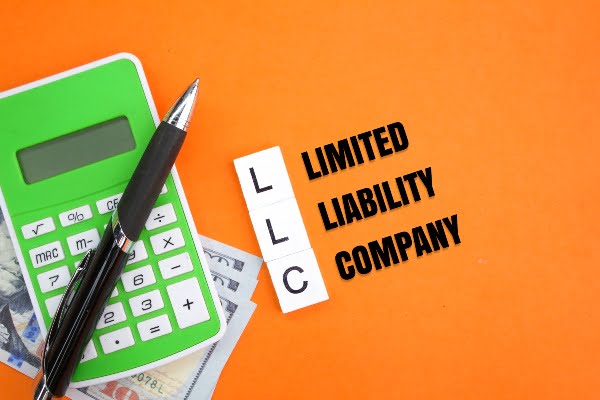
As mentioned earlier, an LLC combines the advantages of both partnerships and traditional corporations, offering limited liability protection to its members. As stated by Forbes, “LLCs provide a shield to members’ personal assets. If the LLC is sued or faces other liabilities, such as debt, the member’s personal assets are generally not at risk.”
Furthermore, LLCs are popular among entrepreneurs and small business owners because they are relatively easy to set up and maintain. To form an LLC, you typically need to file articles of organization with the state, which usually requires minimal paperwork and fees.
Another advantage of LLCs is their flexibility in terms of management and taxation. LLCs can be managed by the owners, known as members, or by an appointed manager. Additionally, LLCs can choose to be taxed as a partnership, an S corporation, or even as a disregarded entity.
What is an LLC created for?
Limited Liability Company (LLC) is a type of business entity formed under state law, primarily to provide a separate legal identity to the company from its owners, shielding their personal assets from the liabilities of the business. It is often preferred by entrepreneurs, small business owners, and professionals who seek a flexible and tax-efficient structure for their enterprise.
One of the primary advantages of an LLC is that it allows the business owners to separate their personal finances from their business finances. This means that if the company faces legal or financial troubles, the personal assets of the LLC’s members are protected, and only the assets of the company are at risk. This liability protection is crucial for business owners as it allows them to take risks and pursue growth opportunities without putting their personal assets in jeopardy.
Another advantage of LLCs is that they offer flexible management structures and distribution of profits. The LLC can be managed by its members, or they can appoint a manager to oversee the day-to-day operations of the business. Additionally, the profits of an LLC can be allocated to its members in any proportion, which allows the company’s owners to tailor the distribution of profits to their individual needs and circumstances.
It is important to note that LLCs are subject to state laws, and their formation and governance requirements may vary depending on the state where the company is registered. However, generally, the process of forming an LLC involves filing articles of organization with the state and drafting an operating agreement that outlines the company’s management structure, ownership, and other important provisions.
Overall, an LLC is created primarily to protect the personal assets of its members and provide a flexible and tax-efficient structure for their business. By shielding the owners’ personal finances from the company’s liabilities, an LLC allows entrepreneurs and small business owners to take calculated risks and pursue growth opportunities while safeguarding their personal wealth.
Essential requirements to form an LCC:
Register the name of your LLC. You can consult the forms and conditions with our lawyers.
Draft a contract where the name chosen in the previous point must appear, the name of the members that compose it (which in its constitution is unlimited), description of its organization, among other items.
Create an operating agreement: All LLCs must have an agreement that, although not mandatory, is essential because it contains a kind of contract that contains the rules and regulations of its constitution. Also included are all the operations on the part of the owner(s) and stakeholders that comprise it.
Other requirements:
There are other requirements that vary according to the place of incorporation of the LLC. These can be:
Publication of the constitution made and subsequent signing of an affidavit.
Other documentation to obtain according to the place of incorporation may be licenses and business permits.
Other requirements are: Comply with payment of sales taxes, tributes, licenses, patents, income taxes, and always file an annual report. It is also essential to create a record of each decision made.
Note: What is recorded individually for each member are their earnings, which when distributed among their shareholders, must be reported in their personal affidavits.
Our advice as business lawyers is essential to determining these points that must be met, if necessary, for the creation of the LLC.
Advantage:
The main one is the protection of the personal assets of the members that constitute it.
Also, if a member has a negative personal financial situation, the creditor cannot fall on the incorporated company.
It takes less paperwork than other types of business formation.
It has tax benefits: They pay lower rates—and in this aspect, do not hesitate to contact us to advise you according to the type of company that you constitute—but what you can be sure of is that the difference is substantial.
It has substantial flexibility because it is not essential to form a board of directors, giving their owners more control over business operations.
It is easier to obtain commercial loans.
You Need a Business Lawyer for Legal Compliance and Protection
In conclusion, creating an LLC offers numerous advantages, including safeguarding personal assets, tax benefits, flexibility, and easier access to commercial loans. However, it is vital to follow proper formalities such as registering the company name, drafting contracts, creating an operating agreement, paying taxes, and filing annual reports.
Working with a business lawyer can be helpful to ensure compliance with all legal requirements and avoid any legal issues that may arise during the early stages of starting a business. Ultimately, an LLC can be an excellent option for those committed to establishing a company and seeking to protect their personal assets while also having greater control over business operations and enjoying tax benefits.

To help summarize key points and address common queries, here are some frequently asked questions that many clients ask when thinking about their business model:
How does the flexibility of an LLC compare to other business structures?
An LLC offers more flexibility than corporations in several ways. LLCs can be managed by members or appointed managers, allowing for a less formal structure. They have multiple taxation options, including being taxed as a sole proprietorship, partnership, or corporation, providing opportunities to minimize tax burdens.
Additionally, LLCs can distribute profits in any manner agreed upon in the operating agreement, not strictly based on ownership percentages. They also require fewer formalities, such as not needing to hold annual meetings or maintain detailed records, making them simpler to manage compared to corporations.
What are some common mistakes to avoid when creating an LLC?
The articles of organization are foundational documents that officially register your LLC with the state. Errors in this filing, such as incorrect information or missing required details, can delay the formation process or result in legal complications. It’s essential to ensure all information is accurate and complete.
Also, failing to create a detailed operating agreement can lead to misunderstandings and disputes among members. Even though not all states require this document, it is a best practice to have one in place to set clear expectations and guidelines.
One of the key advantages of an LLC is the protection of personal assets. However, this protection can be compromised if personal and business finances are not kept separate. This practice, known as “piercing the corporate veil,” can lead to personal liability for business debts and obligations.
Each state has its own regulations and requirements for forming and maintaining an LLC. Neglecting these state-specific rules, such as obtaining necessary licenses or permits, can result in fines, penalties, or even the dissolution of your LLC. It is crucial to understand and comply with the regulations in the state where your LLC is registered.
Maintaining accurate and thorough records is essential for legal and tax purposes. Poor record-keeping can lead to compliance issues and make it difficult to manage the business effectively.
While an LLC provides limited liability protection, it is still wise to have adequate liability insurance. This can protect your business from potential lawsuits and claims that could otherwise be financially devastating.
Many LLCs do not plan for the future, including what happens if a member leaves or passes away. That’s why a clear succession plan outlined in the operating agreement can prevent disputes and ensure the continuity of the business.
What are the steps involved in registering the name of an LLC?
Choose a unique name that complies with state regulations.
Conduct a name availability search in the state’s business registry.
File the chosen name with the state, usually included in the articles of organization.
Pay the necessary registration fees.
How does a business lawyer help with drafting contracts?
They understand the intricacies of contract law, including legal terminology, requirements, and enforceability criteria. This expertise ensures that contracts are drafted with precision and clarity, reducing the likelihood of ambiguity or misinterpretation. Whether it’s a partnership agreement, service contract, employment agreement, or vendor contract, the business lawyer ensures that the terms and conditions align with the client’s goals and protect their interests.
Contracts must comply with various federal, state, and local laws, as well as industry-specific regulations. A business law firm ensures that contracts adhere to these legal requirements, preventing potential legal challenges or disputes in the future. They stay updated on changes in laws that may affect contract terms and incorporate necessary provisions accordingly.
What is the process for consulting with a business lawyer?
You can contact us to schedule a consultation with a business lawyer in Miami. Here’s how the process typically works:
Feel free to reach out to us via phone, email, or by filling out a contact form on our website. During this initial contact, you can provide basic information about your business and the specific legal issues you need assistance with.
We will schedule an initial consultation at a convenient time for you. This meeting is an opportunity for us to discuss your legal needs, understand the scope of your concerns, and determine how we can assist you.
Prior to the consultation, we may ask you to gather and provide relevant documents related to your business and the legal matters at hand. This could include contracts, financial statements, corporate documents, and any correspondence relevant to ongoing disputes or transactions.
Based on our discussion and analysis, we will provide you with personalized legal advice. We’ll discuss potential approaches, risks, costs, and timelines involved in resolving your legal issues.
Depending on the complexity of your legal matters, there may be follow-up actions required. This could involve further document review, additional meetings, negotiation with third parties, drafting legal documents, or representation in legal proceedings.
¿Are you looking for business lawyer in Miami? You came to the right place.
